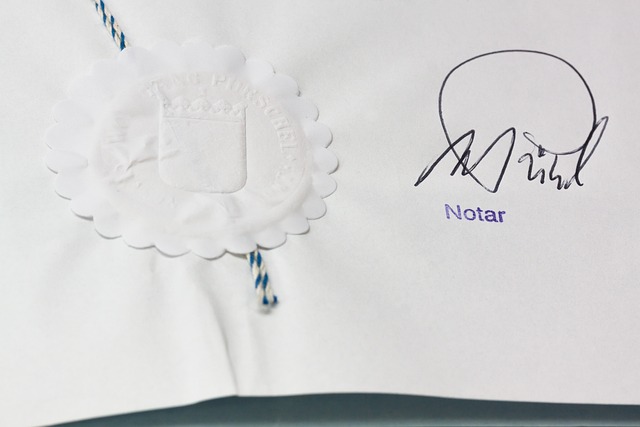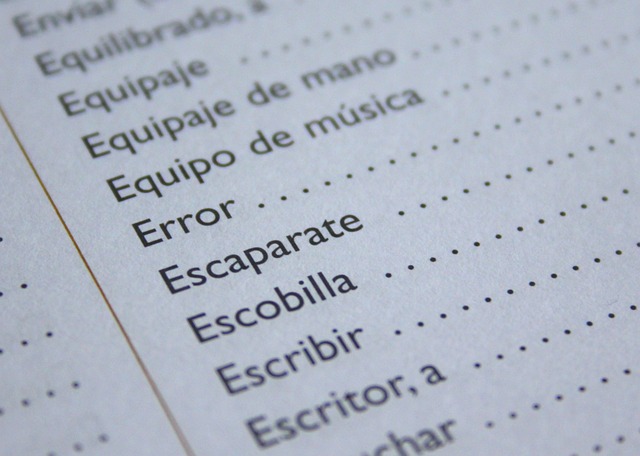Rapid Translate Team
You’ll need a Spanish notary when procuring an English-to-Spanish translation of official documents. As English notaries sign, seal, and stamp official documents and certificates, Spanish notaries do the same within their jurisdiction.
Notaries work within districts, so it would be wrong for an American notary to handle a Spain-bound document.
Therefore, if you’re translating administrative documents into Spanish, you’ll need the services of Spanish notaries. This fact raises concerns about how to get one, so we’ll tell you how in a bit.

Table of Contents
Who Is a Spanish Notary Public?
A notary in Spanish provinces is a legal official who endorses documents by signing and stamping them with a seal. The government appoints notaries and sets the standard for them to follow. The title of a notary attracts a lot of respect in Spain because of the duties the bearer executes.
For example, it’s the sole responsibility of a notary to be a neutral, nonpartisan witness to the signing of documents. The notary also ensures that the translator signs the correct document(s). Additionally, this official verifies the translator’s identity before they sign the certification statement of translation accuracy.
For the verification process, the professional certified spanish translator must present a government-issued photo Identification card. With a valid means of identification, the notary can ascertain the genuity of the signatory. Thus, a Spanish notary public reduces the possibility of fraudulent practices like impersonation.
A notary’s certification is vital as it guarantees the acceptance of documents to some extent in courts or formal organizations.
Consequently, a notarized document has legal recognition. So, as a public officer of the law, a Spanish notary performs the legalities needed to ratify documents and certificates.

Understanding the Duties of a Notary
A notary functions in an official capacity as authorized by the government. Majorly, notaries legalize transactions, oaths, contracts, statements, and agreements. However, these do not always require translation.
You’ll need a notary to preside over powers of attorney and other legal public issues in Spain. A notary also stamps property deeds and wills, among other documents. But do they only watch and sign?
The answer is no; notaries do a lot more than that. Their responsibilities cover a wide range of assignments, and they must operate within the confines of the law of notaries. Examples of notarial duties include drafting documents, giving oaths, and presiding over acknowledgments or jurats.
Amongst other functions, notaries maintain the integrity of legal advice. Moreover, you can visit the notary office if you need someone to clarify a legal concept regarding a notarization.
Furthermore, it’s important to note that after facilitating each translation or transaction, notaries keep records of each case. Hence, they contribute to building a legal repository for future reference.

How To Become a Notary in Spain
The term for a notary in Spanish is Notario, and it’s considered a major profession. In the US, anyone can take a brief course, sit for exams, and get a notary commission certificate. They can then take the oath of office within a few months.
However, in Spain, the situation is different. To become a notary, you’ll have to study for many years. First, you must undergo four years of formal education to get the Grado de Derecho (a law degree).
This law degree qualifies anyone to pursue further studies to become a notary. If you successfully pass this preliminary step, you can invest time studying for another four to eight years. You’ll qualify for the notary exam at the end of the entire study period.
If you sit and pass, you’ll gain authorization from the authorities to officially become a Spanish notary. You can then purchase the necessary supplies and get an office within your jurisdiction. If you work within an agency, they’ll handle your office arrangements. All that is left for you to do is discharge your duties promptly and appropriately.

4 Steps to Finding A Spanish Notary Near Me
The high demand for document translation has caused a surge in the need for notary services. Notarization in different languages is helpful in cross-border business transactions, educational exchanges, and foreign work cases. Therefore, people often ask, “How do I find a Spanish notary near me?”
1. Discover the Prerequisites
Many focus solely on finding a notary and forget to consider the basics. Before hiring a notary, you should decipher the type of notarial service you need. This way, you’ll discover if there are particular prerequisites you need when arranging your documents.
Remember that when notarizing a translation, you’ll need both the original document and its translated copy. The notary will compare the two before confirming your signature with a stamp or seal.
2. Get Recommendations
When deciding the location of your notary, remember that they function only within their government-approved jurisdictions. So, look for notaries who work within your district, either at the state or county level.
Now, you can begin to quiz people you know who have formerly notarized their documents. Ask questions about how they searched and where they eventually got the needed services. You may get a few recommendations with names and contact details.
3. Make Physical Enquiries at Important Offices
Since Spanish notaries are legal officers, visiting nearby law firms and asking for recommendations would be great. You can also check courts, as notaries visit them frequently.
Taking your search to courts and local law firms is excellent, as it provides multiple options. You can scrutinize available notaries and choose your preferred one.
4. Take the Search Online
If you want to explore other options, you can begin an online search for translation notarization services while visiting offices. Use a popular search engine like Google to browse for Spanish notaries in your county of residence. Note that you can tailor your search to streamline your options.
The search will provide several results, including official notary directories on the websites of professional associations or organizations. You might also find notaries in directories on government websites.

The Best Way To Get a Spanish Notary
Finding a notary through the steps above will yield good results, but the procedure isn’t suitable if time is insufficient. Practicalizing all those steps requires time, so if you need a notarized document instantly, that won’t work.
Luckily, there’s a fast alternative better than a rush notary that is highly efficient regardless of location. Wherever you are, you can find a notary from Spain by consulting digital translation agencies.
Digitalization has made the world a globally interconnected village, so distance is no longer a barrier to transactions.
Therefore, you can visit the website of any accredited translation agency and access their services from home. Creditable translation agencies work with human translators and notaries from almost every country. So, they are perfect outlets for connecting with a Spanish notary.
Moreover, if you need a notarized translation, you can initiate a joint process and kill two birds with one stone. All you need to do is hire an agency to contract a translator and a notary. If you buy the idea and would like to try it, consider patronizing RapidTranslate. We’re a translation company functioning in a multilingual capacity to serve your translation and notarization needs. Quality is our watchword as we help people break global communication barriers. So order now and walk the path to seamless communication!




